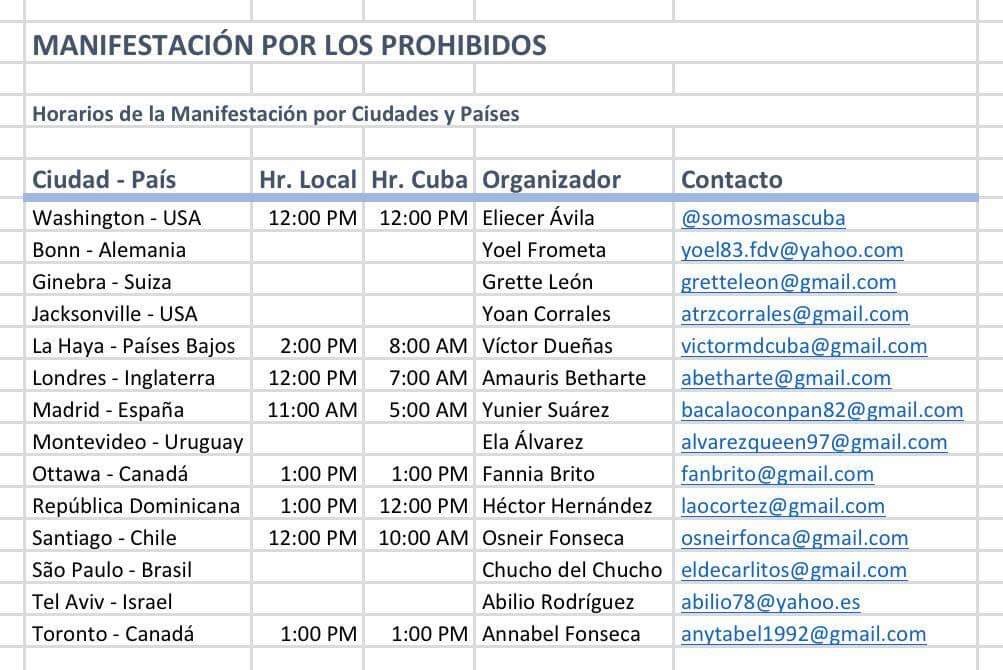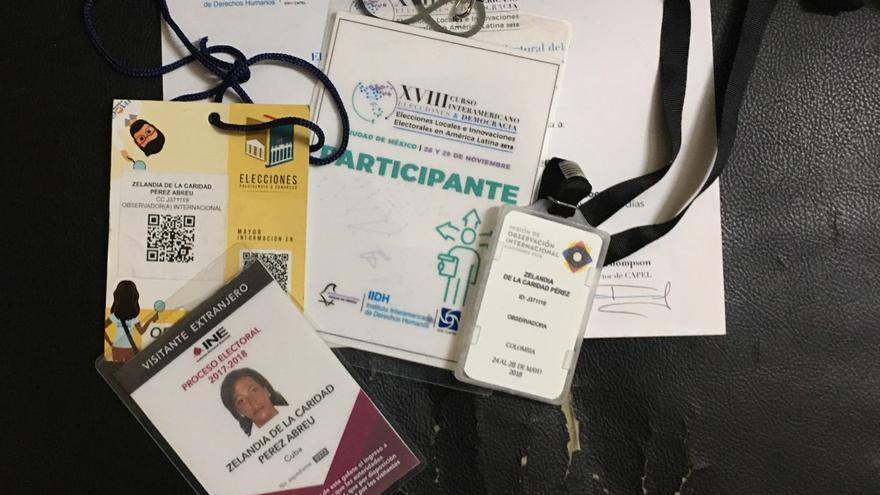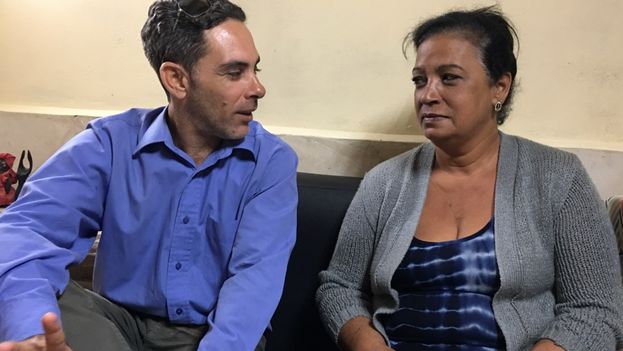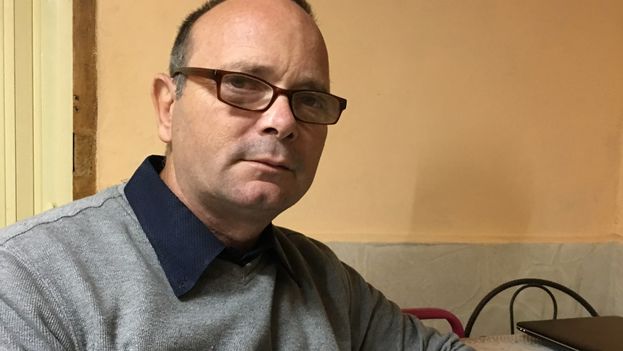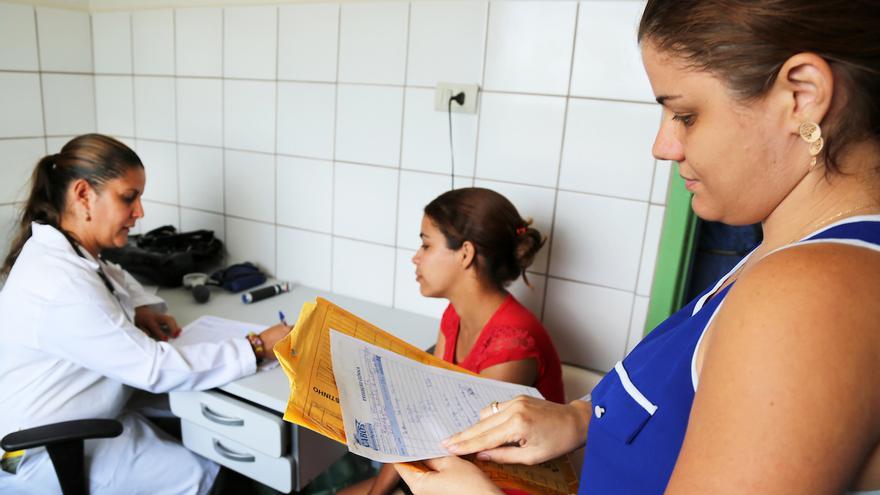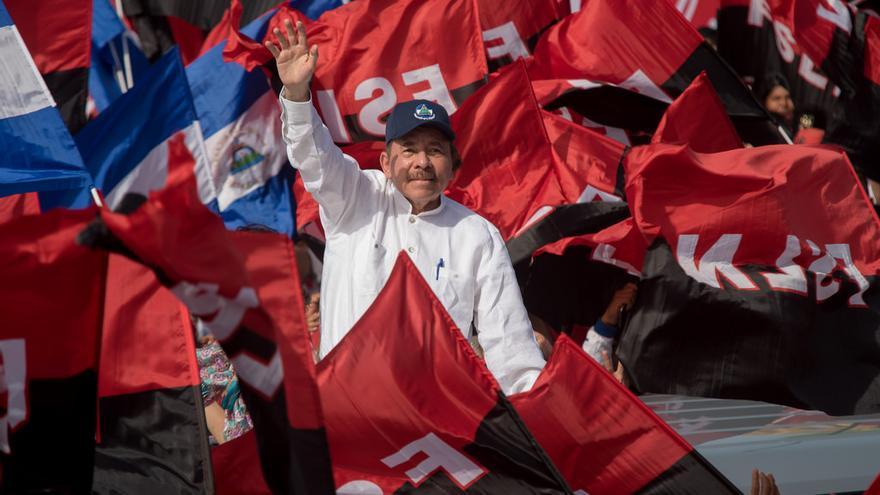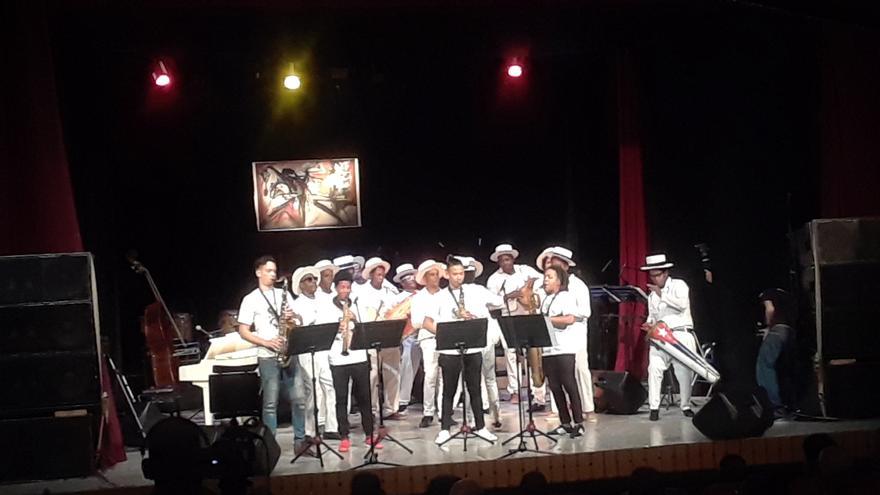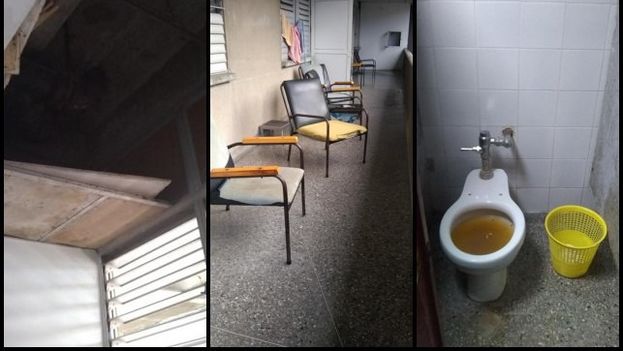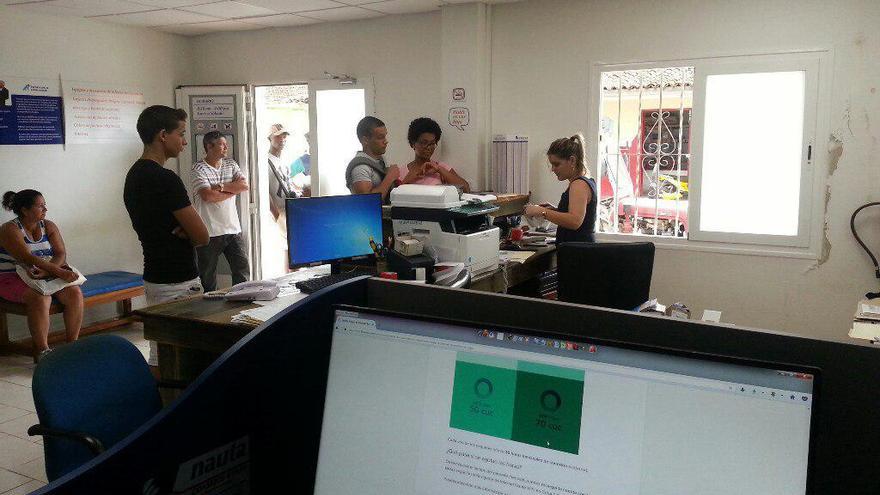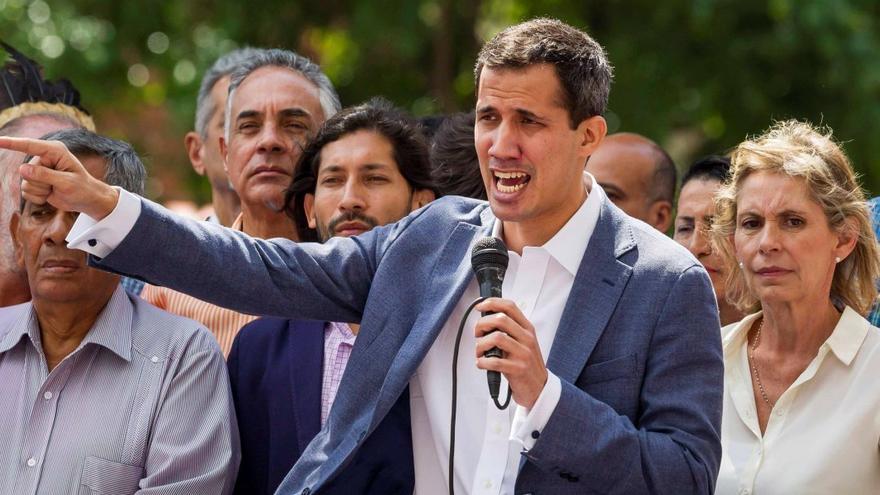Iván García, 14 January 2019 — “That cold morning of February 15, 1976,” recalls Sergio, a retired worker, “I was one of the first to vote in the referendum that was held to ratify the drafts of the Constitution and the Law of Constitutional Passage. I believed blindly in Fidel Castro and neither I nor anyone else considered voting NO. The internet didn’t exist, access to information was limited, and we Cubans would sign whatever blank paper the government gave us.”
Forty-two years later, some things have changed. Sergio no longer supports the government, because he assures that it hasn’t done a good job in its obligations in the economic and social spheres. “The money from my retirement and the salaries of my three children are barely enough to eat, and for that reason I go out to drive an almendrón [old American car used as a taxi] that a neighbor rents me, so I can try to get a few extra pesos. I’m going to vote NO for several reasons. The main one, I don’t want to validate a government that in six decades has been incapable of guaranteeing food for the people or offering quality public services.” continue reading
Sergio is not a dissident. Neither is José Manuel, a computer specialist. “When the government proposed a new Constitution, my gang of friends, almost all of them intellectuals, musicians, and designers, showed interest in studying it and comparing it with the previous one, from 1976. We were in favor of Article 68, on gay marriage. They were intending to vote Yes and I was thinking of abstaining, in order to not go against the gays. But when they withdrew 68, I moved from abstention to voting NO.
“I don’t care if this Constitution is better than that of ’76. If they haven’t fulfilled the obligations of the previous one, what will obligate them to fulfill those of this one? So, with Article 68 gone, it’s clear to me that it’s no longer about choosing between two Constitutions, but about a referendum of support for the government. I don’t want socialism to fall, but I do believe that the government deserves a good whack on the head,” he says and adds:
“Eliminating Article 68 not only changed my position, but also that of my friends and many people. A few days ago I took a survey at a family party. There were 20 people between 25 and 50 years old. I expected half and half approval for the Constitution, but the result surprised me: 16 responded that they were going to vote NO and 4 still hadn’t decided. I told them that for the first time I was noticing an agreement between ’the worms [derogatory term for Cuban exiles and opposition] and the intellectuals.’
“It’s an unprecedented situation: Díaz-Canel, the current president, didn’t storm the Moncada Barracks, he didn’t sail on the Granma, and he didn’t go up to the Sierra Maestra with the guerrillas, he doesn’t have the same legitimacy of the Castro brothers. He’s just one of us. The people don’t see him as a sacred being, and that is noticeable in the nerve with which the government is criticized on social media, by people who live in Cuba and don’t belong to the dissidence.
“Whatever intentions he has, Díaz-Canel is closely watched. I believe that the government should be worried about what will happen on February 24. I think that the result will be 60-70% in favor and between 30-40% against. Although in the end the government will win with the usual 90%. Cuba is crazy like that.”
The Constitution of 1976 was ratified by 97.7% of Cubans. “I was born in 1959 and in 1976 I was 17. I was studying at a technological institute and was openly gay. It was the first time I voted in my life. I was scared shitless, but when I was alone in front of the ballot paper I put down a giant NO. If at that time, when everyone supported the Revolution, I was capable of voting against, now that people are lying in the middle of the street, I’m also going to vote NO. I’m tired of so many lies and promises. I don’t want socialism at all,” confesses Adolfo, a private hairdresser.
Rolando, an accountant, sees the February 24 referendum “as another pantomime by the leaders, to try to legitimize not only the future to which they want us to bow, but also, as always, to confuse and entangle the world with a false democracy that in Cuba has never existed. I no longer remember the last time I went to vote, I got tired of so much show a long time ago. When I used to go I would annul the ballot, but this time I’m planning to go and vote NO,” he says and adds:
“I would like to be surprised and for them to say that the percentage of approval was 80 or less, but that would be a reality that I believe they are not prepared to admit. They neutralized the greatest danger that they had by withdrawing the famous Article 68, they knew that they would have a large protest vote, because of that article and to demand the Direct Vote [to elect the president] that, incidentally, were both debated at the assembly in my neighborhood.
“One lady mentioned that in numerous countries people voted to elect their president, and she too wanted to elect our own. Due process of law was also debated, that citizens have the right to an attorney from the very moment of their arrest and until the lawyer is present, not to be obligated to make a statement, as is seen in movies.”
The political indifference among ordinary Cubans, those who breakfast on coffee without milk, is tremendous. On corners, in lines at shops, or inside shared taxis, there are people who speak frankly about their voting intentions. In the neighborhood where Rolando lives, in the west of Havana, “people prefer not to have an opinion, apathy is significant, although some say that they won’t go to vote. I try to convince my friends of how dangerous and irresponsible it is, at this stage, to play the government’s game, how the best thing is to go and vote NO. Even if afterward they falsify the results.”
Carlos, a sociologist, believes that “the government has attempted to raise a curtain of smoke, legally modernizing the future Constitution by introducing Habeas Corpus and recognizing private work, but it keeps the disrespect toward those who think differently. It’s abnormal to sustain a dysfunctional system for life. In one of the articles of the new Constitution the use of arms is authorized if someone intends to change the system. Accepting that Constitution is jeopardizing the future of our children and grandchildren.”
Julio Aleaga, an independent journalist and spokesman for Candidates for Change, points out that “the best strategy is voting NO. The regime isn’t prepared to execute a massive fraud. Any citizen, in agreement with their own regulations, can observe the vote count after the referendum. We are preparing dozens of activists to perform that function on February 24. Voting NO is a better proposal than not going to vote. Abstention or leaving the ballot blank doesn’t specify what was the intention of that person’s vote. A NO has a marked political intention. If we follow the voting trends of past elections, now, when we have alternative journalists, independent artists, private workers, and citizens upset with the performance of the regime, I’m convinced that the vote for NO will be notable.”
Juan González Febles, director of the weekly Primavera Digital [Digital Spring], supports the group of opponents whose strategy is not going to vote. “It’s the State that counts the votes and whenever we are talking about dictatorships, it’s not going to hold an election to lose. If the Neocastro regime senses that it could lose, there will be a widespread fraud. If those who opt to vote NO lose, as will surely happen, they will have no other choice but to recognize their defeat. Then they will be legitimizing an autocracy.”
Reinaldo Escobar, editor-in-chief of the newspaper 14ymedio, is in favor of NO. “A miracle would have to occur for that proposal to win by majority. But I believe that it’s worth trying,” he emphasizes. In a recent article, Escobar writes that “the suspicion of a possible fraud has a demobilizing effect among the promoters of NO. The most effective antidotes to cancel out this paralyzing pessimism are assuming that possibility as a reasonable risk or trusting that fraud won’t be committed.”
With fewer than forty days from February 24, when the popular referendum that would approve the new Constitution of the Republic will take place, the regime, which according to its own electoral laws prohibits carrying out advertising campaigns, “in the next weeks, in high schools, universities, and work places discussions will be held with the objective of encouraging the people to vote YES,” assures a party official.
The battle is set. The government wants to cover up its inefficiency with the worn out anti-imperialist discourse and insulting those who think differently. The activists for NO, without public spaces to discuss their arguments, seek that the greatest number of Cubans over age 16 join a political process where votes are as powerful as any weapon. Adding people is the premise. Change is only possible if the citizenry mobilizes.
Translated by: Sheilagh Carey
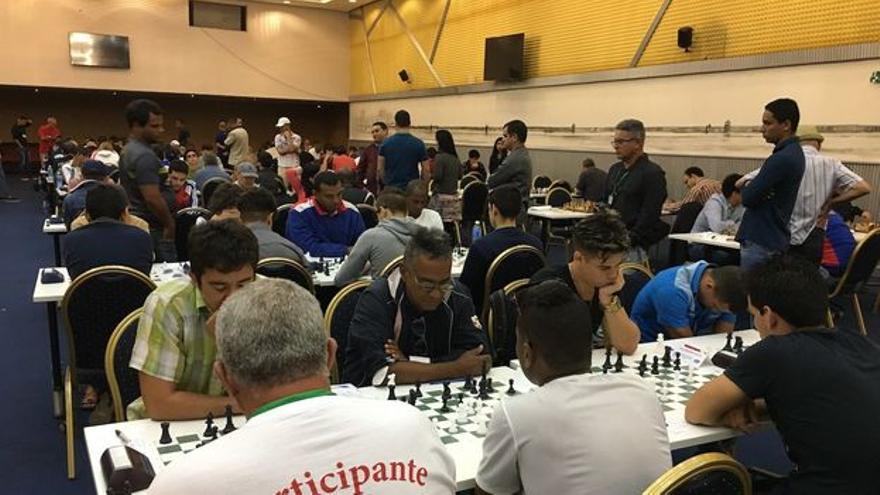
![]() 14ymedio, Havana, 22 January 2019 – Cuban Grandmaster (GM) Yuniesky Quesada Perez shared on his Facebook account information from journalist Osmany Pedraza on the decision of Matanzas GM Yusnel Bacallao and Pinar del Río GM (absolute International Master) Lisandra Ordaz to not participate in the final stage of the national chess championships.
14ymedio, Havana, 22 January 2019 – Cuban Grandmaster (GM) Yuniesky Quesada Perez shared on his Facebook account information from journalist Osmany Pedraza on the decision of Matanzas GM Yusnel Bacallao and Pinar del Río GM (absolute International Master) Lisandra Ordaz to not participate in the final stage of the national chess championships.

